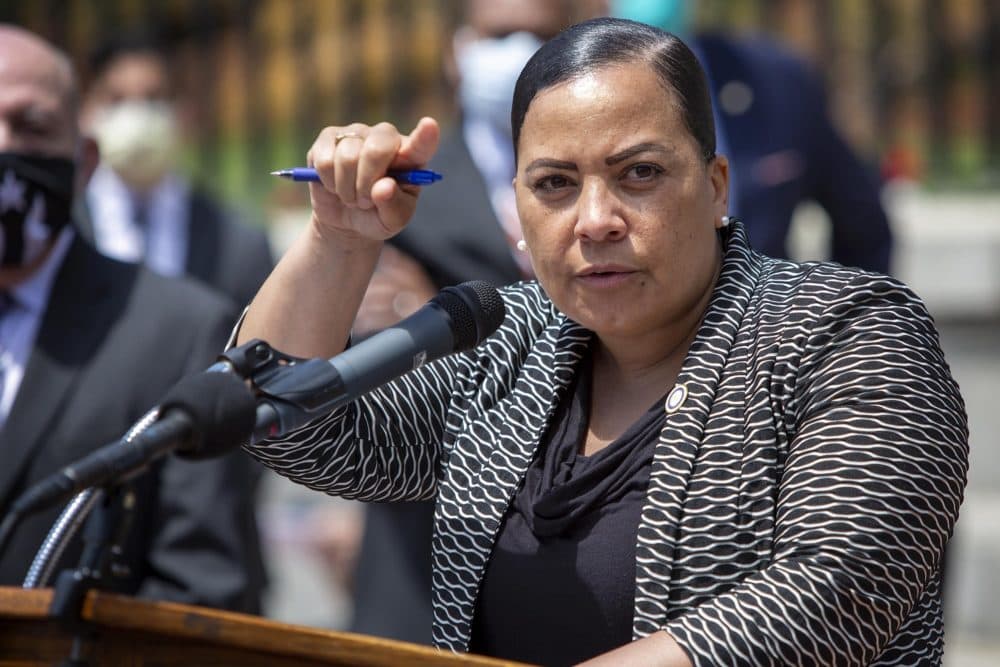Advertisement
Boston Creates Truth, Justice and Reconciliation Commission

Boston is among the three U.S. cities that will form a so-called "Truth, Justice and Reconciliation Commission" to review racial inequities, police violence and misconduct in the legal system.
District attorneys in Boston, Philadelphia and San Francisco will create the commissions with a goal of starting work as early as this fall. The commissions will review the often fractured relationships between law enforcement and communities — many primarily comprised of people of color.
Suffolk County DA Rachael Rollins said the Boston commission will be designed with community input and will address both past misconduct and how to change to legal system.
"We're going to ultimately reimagine what the interaction between law enforcement and certain communities can be and this is one way we're doing that," Rollins said.
For example, Rollins would like such a commission to look at local incidents, such as the fight over busing in Boston and the case of Charles Stuart. In 1989, Stuart falsely alleged that his pregnant wife Carol was fatally shot by a Black man. Before Stuart's brother confessed that Stuart was the one who killed his wife to collect life insurance, and then Stuart killed himself, Boston police aggressively searched the black community and made an arrest.
"Charles Stuart knew his audience and made a fake claim against a fictitious black person," Rollins said. 'Hell was reigned down upon the Mission Hill community and they were never apologized to. This commission is an opportunity to atone."
Rollins said the Stuart case and others have created mistrust of law enforcement, which she said harms public safety. She envisions a Truth, Justice and Reconciliation Commission as a way to address that.
"We are going to do the hard work to document. To atone. And I believe that we're going to move forward and be able to solve more homicides or get more involvement from communities because they'll finally feel they've been respected and acknowledged," Rollins said.
In part, the commissions would be modeled after the Truth and Reconciliation commissions formed when apartheid ended in South Africa in the 1990s.
The Grassroots Law Project is spearheading the commissions.Shaun King, the project's co-founder, said these commissions would be different because they're overseen by district attorneys who could decide to prosecute.
Advertisement
"Because this would function as an endeavor — an effort — within the district attorneys office, there's a straight line to justice and change and policy shifts," King said.
Despite several proposed reforms amid the nationwide protests over police brutality and the murder of George Floyd, King said these commissions are a step toward a new way of dealing with crime and justice.
"It's OK to reform or tinker with the system, but sometimes we have to say we need to build a new system,' King said. "Part of why we're doing this now is to say we need to build a new system that considers all people in Boston, all people in Philadelphia, all people in San Francisco."
The Grassroots Law Project and the DAs are formally announcing the creation of the commissions Wednesday. King said he hopes more cities will follow.
This segment aired on July 1, 2020.
